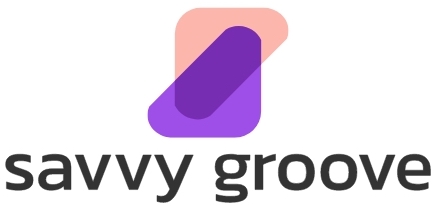In today’s digital world, digital marketing has become increasingly important for all types of businesses, especially small businesses. Small businesses can benefit greatly from digital marketing. However, the process of choosing the right strategies can be daunting. That’s why in this article, we’re going to explore different digital marketing strategies for small businesses. We’ll take a closer look at the different options available, the benefits of each strategy, and how small businesses can leverage them to achieve their marketing goals.
Search Engine Optimization (SEO)
Search Engine Optimization (SEO) refers to the practice of improving the visibility and ranking of a website or web page in search engine results pages (SERPs), primarily through organic or unpaid means. The primary goal of SEO is to drive organic traffic to a website by making it more visible to search engines like Google, Bing, and Yahoo.
SEO involves a range of techniques, including keyword research, on-page optimization, link building, content creation, and technical optimization. Keyword research involves identifying the most relevant and high-traffic keywords for a particular website or page. On-page optimization involves optimizing the content, structure, and HTML code of a website or page for search engines. Link building involves acquiring high-quality backlinks from authoritative websites to improve the trust and authority of a website.
Content creation is an essential part of SEO, as search engines prioritize high-quality and relevant content. Technical optimization involves optimizing the technical aspects of a website, such as its site speed, mobile-friendliness, and security.
SEO is a constantly evolving field, as search engine algorithms change frequently and new trends emerge. As such, SEO professionals need to stay up-to-date with the latest trends and best practices in order to stay ahead of the competition.
SEO is the process of optimizing your website to rank higher in search engine results pages (SERPs) for specific keywords. For small businesses, SEO is a cost-effective and sustainable way to drive traffic to their website and generate leads. SEO takes time, but the benefits are long-term and can be significant. The key to a successful SEO strategy is to research and identify the right keywords. SEO is all about ranking for the right keywords that are relevant to your business and your target audience.
Social Media Marketing
Social media marketing involves creating and sharing content on social media platforms to promote your business. Social media platforms like Facebook, Twitter, Instagram, and LinkedIn have become an integral part of digital marketing for small businesses. Social media is a great way to build brand awareness, engage with your target audience, drive traffic to your website, and generate leads. The key is to create high-quality, engaging content that resonates with your target audience.
Email Marketing
Email marketing is the process of sending commercial messages to a group of people via email. For small businesses, email marketing is a highly effective way to nurture leads and stay in touch with existing customers. Email marketing is cost-effective, measurable, and allows businesses to build relationships with their target audience. To be successful, small businesses need to create compelling email content that provides value to the recipient.
Paid Advertising
Paid advertising involves paying to place ads online, on social media platforms, or search engines. Paid advertising is a great way for small businesses to quickly generate leads and increase brand awareness. Paid advertising can be expensive, but when used strategically, it can provide a high return on investment (ROI). Small businesses need to identify the right platform for their target audience, create high-quality ads, and constantly optimize their campaigns to maximize ROI.
Video Marketing
Video marketing involves creating and sharing videos to promote your business. Video marketing has become increasingly popular among small businesses, as it is a highly engaging and shareable form of content. Video marketing is a great way to showcase your products or services, tell your brand story, and connect with your target audience on an emotional level. Small businesses need to create high-quality and relevant video content that resonates with their target audience.
Summary
In summary, to achieve success in digital marketing as a small business, it’s important to identify the right strategies and tactics that align with your business goals and target audience. SEO is a sustainable way to drive traffic to your website and generate leads. Social media marketing is a great way to build brand awareness and engage with your target audience. Email marketing is an effective way to nurture leads and stay in touch with existing customers. Paid advertising can provide a high ROI when used strategically. Finally, video marketing is a great way to showcase your products or services and connect with your target audience on an emotional level. By implementing a combination of these digital marketing strategies, small businesses can reach their target audience, increase brand awareness, generate leads, and ultimately grow their business.
